
Words For Troubled Times…
We’re almost to the two-year mark of when we first went into lock down. This isn’t news to you, I’m sure.
I remember at the time being shocked. Shocked that the ‘end of the world’ came with spring blooming. With birds singing. With a calm outside my front door as nature ruffled her wings and shook off the final days of winter and shone warm sun upon my face.
So the pandemic isn’t over, but we’re over it. I think that’s a safe assessment. We’ve all been ‘over it’ for quite some time.
And we’ve exchanged the pandemic life for new worries. Half a world away, a country is being demolished in a land grab by a truly twisted, sinister man.
In our country, more fights have risen to the forefront. Women’s rights, Transgender equality, and state governments want to criminalize the word ‘gay’.
Upon hearing these things, I am truly at a loss. One question continues to ring: What in the world are people so scared of? How ignorant can they truly be?
Hell, in my little corner of the world, our House of Representatives passed a bill that would remove an exemption that protects libraries, schools, museums, colleges and universities and their employees for “disseminating material that is harmful to minors.”
What does that mean? Librarians could be fined and thrown in jail. For checking out books!!! And of course, when the politicians trying to pass this bill were pressed into answering just how this would work, the lawmakers couldn’t explain what they considered ‘harmful.’
Want to know what is appropriate? The bill is number 666.
I worked in the library for several years here in Boise. I still have some wonderful friends in that world. They aren’t sleeping well these days. I don’t blame them. I stand with them.
Hell, I stand with my LGBTQ community, women whose bodies are not up for debate in the government and my librarians.
Speaking of Librarians, have you heard of this story going around about the Ukrainian Library Association? They posted on their site about having to reschedule a conference this way:
“We will reschedule just as soon as we have finished vanquishing our invaders.”
A tweet about this went viral but if you have time, I suggest checking out the Ukrainian Library Association Facebook page.
I’ve always known librarians are amazing, but holy cow, it seems Librarians are the new warriors of the 21st century. I think this is why the stereotypical librarian has her hair up in a bun: they have shit to do.
Of course, all this vanquishing of foes of our progress has me reeling; wondering what I can do. I find myself in these times, turning to the wordsmiths. To the poets to get me through. I just wanted to share some words from the past week that have helped.
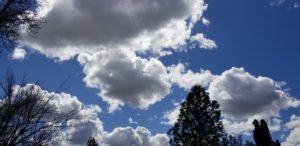
Notes From The First Few Days of 2020 by Mari Andrew
1. I am washing my face before bed while a country is on fire. It feels dumb to was my face, and dumb not to. It has never been this way, and it has always been this way. Someone has always clinked a cocktail glass in one hemisphere as someone loses a home in another while someone falls in love in the same apartment building where someone grieves. The fact that suffering, mundanity and beauty coincide is unbearable and remarkable.

I wake up at 5:00 every morning of my life. I live in a small desert down in the south of Israel in the Negev desert. I begin my day by taking a brisk 40 minute walk in the desert which helps me knock everything into proportion. When I come back home and switch on the radio and I hear politicians using words such as never, forever, or for eternity I know the stones out in the desert are laughing at them. – Amos Oz
 When I go down the rabbit hole of how we will fix things in our world, pollution, racism, global warming…I often go back to my Italian roots.
When I go down the rabbit hole of how we will fix things in our world, pollution, racism, global warming…I often go back to my Italian roots.
Did you know the Duomo in Florence took 142 years to build? The plans were drawn up and construction began in 1293. But the technology to create the dome didn’t exists. But still, the cathedral was built anyway, and the final area where the dome was supposed to go was left exposed for years while people waited.
IN 1420, a man named Brunelleschi began construction on the dome, and in 1436, the structure was finally finished.
Those Italians have some faith, I should say.

You find inspiration and hope in the strangest of places. When you aren’t even looking for it. I went to the Dollar store yesterday, and the young gal checking me out was a bit apologetic about the price raise. I shrugged and said, you know, I didn’t have to teach my kid how to use a gun because of invading forces today, so I’m fine with the increase. She shared with me that she was pregnant and worried. I nodded my head, these days it has not been easy to be a parent or become a parent. She said she heard a quote that has given her a bit of comfort and shared it with me:
“Never feel sorry for raising dragonslayers in a time when there are actual dragons.” ― Unknown
That’s what I’ve been doing, teaching my kid the art of dragon slaying. I’ve hated myself for it; hated that it’s a requirement. But then I think of my kids bravery and fearlessness and laughter and joy and maybe, just maybe the lessons are working.
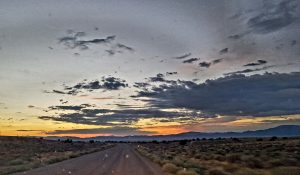 When I think of inspiration, Pádraig Ó Tuama always comes to mind. An Irish poet, this is one of my favorites.
When I think of inspiration, Pádraig Ó Tuama always comes to mind. An Irish poet, this is one of my favorites.
Oremus by Pádraig Ó Tuama
So let us pick up
the stones over which we stumble,
friends, and build altars.
Let us listen to the sound of breath in our bodies.Let us listen to the sounds
of our own voices,
of our own names,
of our own fears.Let us name the harsh light and
soft darkness that surround us.Let’s claw ourselves out from the graves we’ve dug.
Let’s lick the earth from our fingers.
Let us look up and out and around.
The world is big and wide and wild and wonderful and wicked,
and
our lives are murky, magnificent, malleable, and full of meaning.Oremus.
Let us pray.
Speaking of Mr. Ó Tuama, I found him through the podcast On Being, and in partnership with them, he does a weekly podcast called Poetry Unbound.
“Your poetry ritual: An immersive reading of a single poem, guided by Pádraig Ó Tuama. Unhurried, contemplative and energizing. New episodes on Monday and Friday, about 15 minutes each. Two seasons per year, with occasional special offerings. Anchor your life with poetry.”
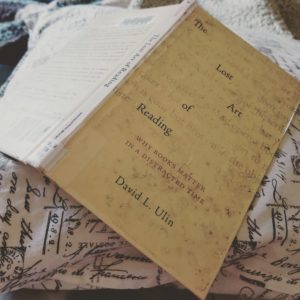
The Lost Art of Reading: Books and Resistance in a Troubled Time by David L. Ulin.
This book was rereleased after the 45th president was elected. I could highlight the whole book, and as a matter of fact, I think my copy is dripping in ink. It is a quick essay read if you wanted to attempt it; well thought out, well written and a wonderful argument for why reading is important.
“…the idea that belief alone is now enough, in certain quarters, to give something the weight of truth. The effect might not be equivalent, but the implications are: that by not asking questions, by reacting rather than thinking, we allow ourselves to be susceptible to all manner of lies. Here have the fallout from the detonation of the central narrative, the breakdown of a kind of collective dialogue, in which, in the name of some amorphous fantasy of identity or ideology, we succumb to the most reptilian of our fears.”
“We see it on blogs and in emails, on television talk shows, in public meetings and community forums; we are a culture that seems unable to concentrate, to pursue a line of thought or tolerate a conflicting point of view. … It’s different with a book, or any long-form piece of writing; these are slower, deeper, quieter. As readers, we are asked to slip inside the text, and if we can’t help but bring our personalities and perceptions to the process, the participation required leads to an inevitable empathy.”
While we’re at wordsmiths making arguments for reading. Here is a piece that still sings to the marrow in my bones. Why Read Poetry? By Dan Chelotti.
read poetry because of the times you have stopped to look at rain fall through the light of a street lamp and wished you knew the words that made it what it was. Read poetry because you are lonely and full of wild abandon. Read poetry so when you are no longer lonely and are wrapping your arms and legs around your beloved your beloved will tell you I have never known arms and legs to have such wild abandon. Read poetry so a part of you stays in what you see, so what you see stays with you. Read poetry because the world and our emotions and our ideas are always more complicated than we want them to be. Read poetry because the lady next to you in the cafe won’t stop humming tunelessly to herself and you need to find a way to know her loneliness. Read poetry so you can hate National Poetry Month knowledgeably on social media. Read poetry so you can increase your chances of watching your favorite sport with Seth Landman and the ghost of Herman Melville. Read poetry because the night is long and people die and both of these truths are unfair and hurt us over and over without relenting. Read poetry because the unnamed heaviness in you is the weight of the ancient nameless dead longing to be remembered. Remember them. Read poetry because language is a virus from outer space that is ever evolving and every poem has the chance of living forever. Read poetry and get excited about formal constraints in poetry because, c’mon, who doesn’t like to be tied down from time to time? Read poetry instead of looking at her profile picture so often that when you open the Facebook your browser opens her page automatically; read poetry so that every her in every poem becomes her. Read poetry because you know that waiting makes whatever you are waiting for even better when it comes. Read poetry because you are already wicked smart and poetry is the only thing that really stumps you, because when you see a manticore you trust your instinct and run like hell instead of asking if Mr. Manticore would like a bite of your tuna fish sandwich (show us them Mineola Prep track star legs). Read poetry because manticores are real, and so are all the gods, and gnomes, and so is faery, and so are all of your feelings. Read poetry because no one has ever loved or been hurt by love as much as you. Of course you feel this way, poetry understands. Read poetry because of the vestiges of a world you once knew often invade your day and the houses and avenues of the past are, alas, prisoners of the years. Read poetry so you can steal lines from Proust and this line from Barbara Guest: Poetry is the true fiction. Read poetry so you never have to talk about MEANING ever again because poetry is unparaphraseable, man. Read poetry because the political and environmental realities make you weep and poetry can help. Poetry can help. Read poetry because it offers no answers, no advice, no cures, just understanding and love and timing. Read poetry because the world is more than the facts of the world. Read poetry because you don’t have enough mystery in your life and you want to become even more mysterious (re: attractive) than you are already are. Read poetry because you have poems in you that need to be written. Read poetry because birds, honeysuckle, lit windows, new shoes, walking outside, donuts, lipstick, fresh peaches, cocktails, kisses in the rain produce in you a feeling that you never want to lose, but you will, and the only thing you can do is pay better attention when the feeling comes again. And here it comes. And there it goes. Was it as rich as it could be? Life is so short, my friends. But poetry makes it last a bit longer. It does. It is true.
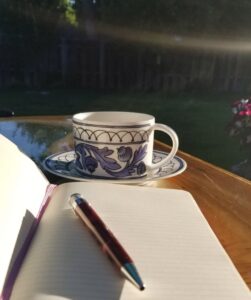
And this quote I think, sums up how I’m feeling lately, I don’t think it pertains just to ‘artists’. I think it pertains to waking up in the morning and putting your best foot forward. It pertains to getting your kids dressed and ready for school. It pertains to showing up to your day, the best version of yourself, even if you need to show your vulnerability and humanity.
“Remember that your work matters. That the world won’t always be like this. That though we are going through massive, seismic changes, art still matters. The quote that has been my touchstone through this crisis comes from Robin Sloan, author of Mr. Penumbra’s 24-Hour Bookstore, who said, ‘Where do I direct my attention, of which there suddenly seems to be a surplus?… Direct it at the same thing you loved on the first day of this year. Then, crank up the intensity.’ Books are a wonderful, joyful escape and will continue to be so. Be kind to yourself, but don’t be afraid to keep writing, to keep working, to keep producing because readers want what you have to say.” —Lauren Blakely
What words have you turned to or found that have helped? I’d really love to know.


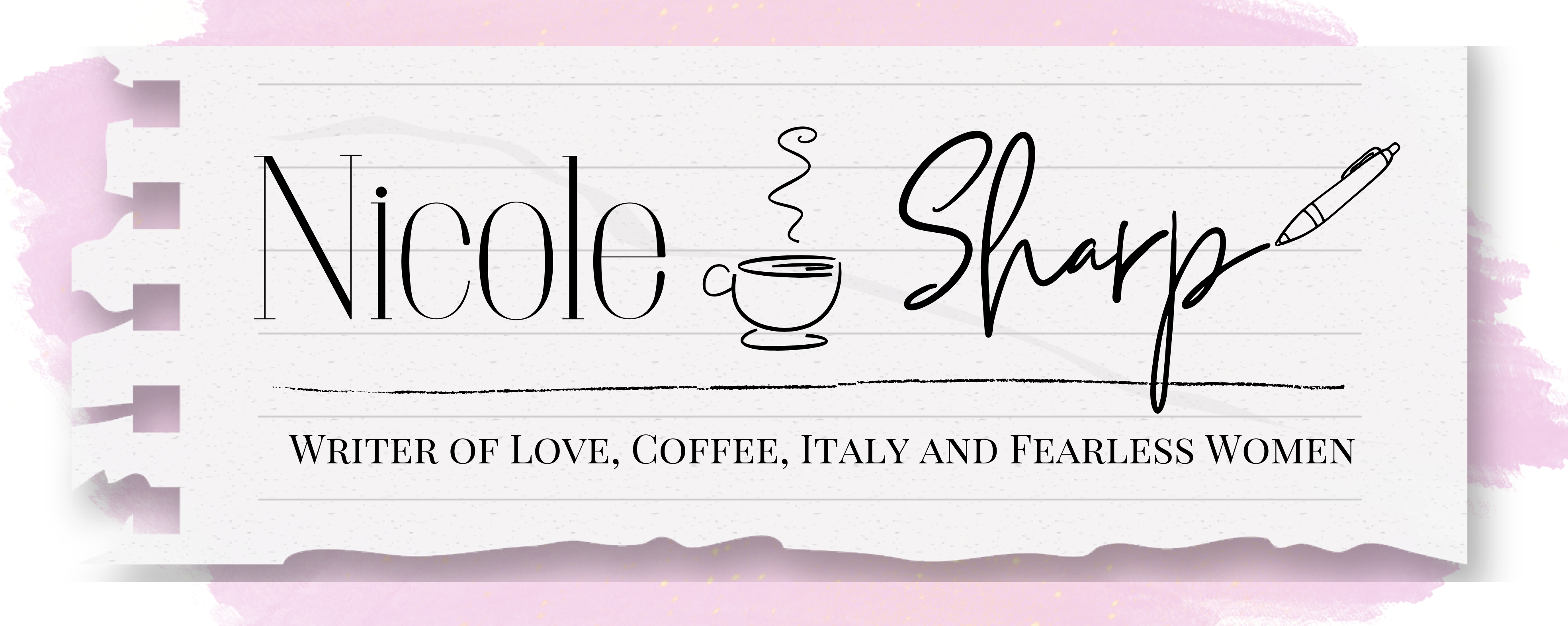
5 Comments
Terri+Niccum
Oh, my gosh, Nicole! I am smiling and crying at the same time. I feel so full, well-cared for, and blessed to have read your blog today. What magnificent first aid for the heart. Thank you!
Bob Niccum
Excellent, inspiring post. I’m a longtime fan of that Amos Oz quote, so I’m glad you’re sharing it with others.
Brenda Sharp
My daughter,
Your dad and I are thousands of miles away from you right now listening to the Irish Sea in a quaint B&B, recapturing a trip cancelled by the Pandemic 2 years ago. Your article reminds us that we are grateful! because our health has changed, our steps a little slower than they were in 2020, and World Peace is still a dream.
Your Dad just summarized:
” we left our ‘present’ life in California a few days ago to visit the “past” history here in Ireland and in a few more days we will meet up with 3 of our grandchildren who represent the best of our ‘future’. We are so content right now!
Mom
Adrienne Matthews
Absolutely brilliant thank-you Nicole. Truly inspiring.
Mel
Beautifully written and conveyed, at the perfect time Niki. I’ve been struggling to turn the thoughts in my head into visual art. It is difficult to focus on the beauty and goodness today when there is so much blatant cruelty, ugliness and sorrow in the world. It is impossible for me to ignore. Thanks for your words today:)